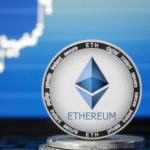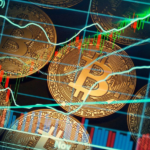
Middle East McDonald’s Franchisees Embroiled in Political Controversy
- Antwan Koss
- October 17, 2023
- news, Crypto
- Controversy, McDonald, Political
- 0 Comments
Middle East McDonald’s franchisees have openly aligned with either the Israeli forces or Gazans in the Israel-Hamas conflict, intensifying through social media declarations.
Key Takeaways
- McDonald’s franchisees in the Middle East have publicly taken sides in the Israel-Hamas conflict.
- The situation escalated with opposing social media declarations supporting either Israeli forces or Gazans.
- Broadcaster Max Keiser highlights the role of traditional money in such conflicts, suggesting Bitcoin as a remedy.
- Keiser controversially criticizes gold and certain public figures, reinforcing his pro-Bitcoin stance.
Global fast-food juggernaut McDonald’s Corp has inadvertently stepped into the geopolitical arena. Amidst the ongoing Israel-Hamas tension, its Middle East franchisees have polarized, voicing support for opposing sides. The spark was ignited when McDonald’s Israel pledged thousands of free meals for the Israel Defense Forces, a move quickly countered by McDonald’s Oman (Al Daud Restaurants LLC) via a $100,000 donation for Gazan relief efforts.
In last few days McDonald's Faced Backlash For Offering Free Meals To lsraeIi Soldiers
– Tension Escalated in Middle East.Then McDonalds of ME Made Donations to Gaza & Posted 'Standing with Gaza'
– Oman
– Qatar
– KSA
– UAE
– Egypt
– Jordan
– Kuwait
– Bahrain
– TurkiyeThanks… pic.twitter.com/OzMmPHAqxy
— زماں (@Delhiite_) October 15, 2023
McDonald into Controversy
This corporate entanglement in international conflict caught the attention of American broadcaster and Bitcoin enthusiast, Max Keiser. He took to X (formerly Twitter) to articulate a provocative stance, linking traditional fiat currencies and even gold to the perpetuation of global conflicts. Keiser underscored his argument with the assertion, “Bitcoin fixes this.” His commentary suggests that the decentralized and universal nature of Bitcoin could theoretically eliminate the financial underpinnings of such geopolitical disputes.
Keiser didn’t stop there. He further lambasted gold as an outdated asset, dubbing it “the poor man’s Bitcoin” and associating it with “thievery, war, violence & excess stupidity.” He particularly called out individuals like Peter Schiff and Nassim Taleb, mocking their decision to decline his early Bitcoin endorsements.
The incident underscores the increasing complexity of global businesses operating in politically sensitive environments. While McDonald’s corporate probably didn’t anticipate becoming a symbolic player in the Israel-Hamas conflict, the actions of regional franchises reflect the intricate challenges multinational companies face in maintaining political neutrality.
Concluding Thoughts
As for Max Keiser’s comments, they spotlight an intriguing, albeit controversial, view of Bitcoin’s potential role in global peace. While it’s a significant leap to claim cryptocurrency could resolve deeply rooted geopolitical conflicts, the notion challenges us to think differently about money’s role in societal discord. However, it’s critical to approach such claims with caution. The transformative power of Bitcoin and other cryptocurrencies is still evolving, and their broader societal implications remain largely speculative and unproven. Further, Keiser’s criticisms of figures like Schiff and Taleb are personal opinions and should be seen as separate from the broader conversation about cryptocurrency’s potential global impact.





